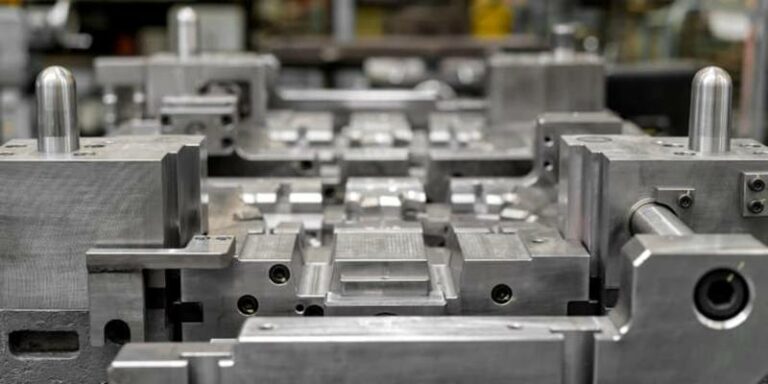A Biased View of Stahl Specialty Company
A Biased View of Stahl Specialty Company
Blog Article
The Ultimate Guide To Stahl Specialty Company
Table of Contents4 Easy Facts About Stahl Specialty Company ShownGet This Report on Stahl Specialty CompanyThe Ultimate Guide To Stahl Specialty CompanyThe Best Strategy To Use For Stahl Specialty CompanyStahl Specialty Company Fundamentals Explained
The refined distinction hinges on the chemical content. Chemical Comparison of Cast Light weight aluminum Alloys Silicon promotes castability by minimizing the alloy's melting temperature and improving fluidity throughout casting. It plays an essential function in allowing complex molds to be loaded properly. In addition, silicon contributes to the alloy's strength and use resistance, making it beneficial in applications where resilience is essential, such as automotive components and engine elements.It likewise boosts the machinability of the alloy, making it simpler to process right into completed items. In this means, iron contributes to the general workability of aluminum alloys.
Manganese adds to the stamina of light weight aluminum alloys and enhances workability. It is typically used in wrought aluminum products like sheets, extrusions, and accounts. The visibility of manganese help in the alloy's formability and resistance to cracking throughout manufacture procedures. Magnesium is a lightweight component that provides toughness and impact resistance to aluminum alloys.
It enables the production of lightweight components with outstanding mechanical residential or commercial properties. Zinc enhances the castability of light weight aluminum alloys and assists control the solidification process throughout casting. It improves the alloy's strength and hardness. It is typically discovered in applications where elaborate forms and great information are needed, such as attractive castings and specific automobile components.
The Main Principles Of Stahl Specialty Company
Since aluminum-silicon alloys have excellent spreading buildings, high gas residential or commercial properties, simple procedures, and outstanding corrosion resistance, aluminum-silicon alloys are most commonly utilized in the die-casting industry in your home and abroad. At the very same time, aluminum-silicon alloys are additionally relatively very early and extensively recognized alloys developed and utilized in die-casting. After continual research and renovation, the majority of the present international mainstream aluminum-silicon alloys have actually been wrapped up and are nothing even more than A356, A360, A380, ADC12, B390, and A413.
The key thermal conductivity, tensile strength, return toughness, and elongation vary. Select ideal resources according to the efficiency of the target product generated. Amongst the above alloys, A356 has the highest possible thermal conductivity, and A380 and ADC12 have the cheapest. The tensile limitation is the opposite. A360 has the best yield strength and the greatest elongation rate.

5 Simple Techniques For Stahl Specialty Company
In accuracy spreading, 6063 is fit for applications where complex geometries and top notch surface coatings are vital. Instances include telecommunication rooms, where the alloy's exceptional formability enables streamlined and aesthetically pleasing layouts while maintaining architectural integrity. Similarly, in the Lighting Solutions industry, precision-cast 6063 parts produce sophisticated and reliable illumination fixtures that require complex shapes and excellent thermal efficiency.
(https://www.ted.com/profiles/48419263/about)
It causes a better Learn More Here surface finish and much better rust resistance in A360. Additionally, the A360 exhibits exceptional prolongation, making it perfect for complex and thin-walled components. In accuracy casting applications, A360 is fit for markets such as Consumer Electronics, Telecommunication, and Power Tools. Aluminum Castings. Its enhanced fluidness enables intricate, high-precision elements like mobile phone housings and interaction tool real estates.

In accuracy spreading, aluminum 413 beams in the Customer Electronic Devices and Power Devices industries. This alloy's premium deterioration resistance makes it an exceptional option for outside applications, guaranteeing resilient, sturdy products in the mentioned markets.
Top Guidelines Of Stahl Specialty Company
The aluminum alloy you choose will considerably impact both the spreading procedure and the residential or commercial properties of the final product. Because of this, you need to make your choice thoroughly and take an educated strategy.
Establishing the most suitable aluminum alloy for your application will certainly suggest evaluating a wide variety of qualities. These comparative alloy attributes adhere to the North American Die Spreading Association's standards, and we've split them into two groups. aluminum metal casting. The very first group addresses alloy attributes that influence the manufacturing process. The 2nd covers characteristics impacting the residential or commercial properties of the end product.
The alloy you select for die spreading directly influences several facets of the spreading procedure, like exactly how very easy the alloy is to collaborate with and if it is susceptible to casting issues. Warm fracturing, also called solidification breaking, is a normal die casting flaw for aluminum alloys that can lead to inner or surface-level tears or splits.
Some Ideas on Stahl Specialty Company You Need To Know
Certain light weight aluminum alloys are extra prone to hot cracking than others, and your option must consider this. Casting Foundry. It can damage both the actors and the die, so you must look for alloys with high anti-soldering residential properties.
Rust resistance, which is already a notable feature of light weight aluminum, can vary substantially from alloy to alloy and is a crucial characteristic to consider relying on the environmental conditions your product will be revealed to. Put on resistance is an additional building typically looked for in aluminum items and can set apart some alloys.
Report this page